 Submitted by LOGOS - Overseer on
Submitted by LOGOS - Overseer on
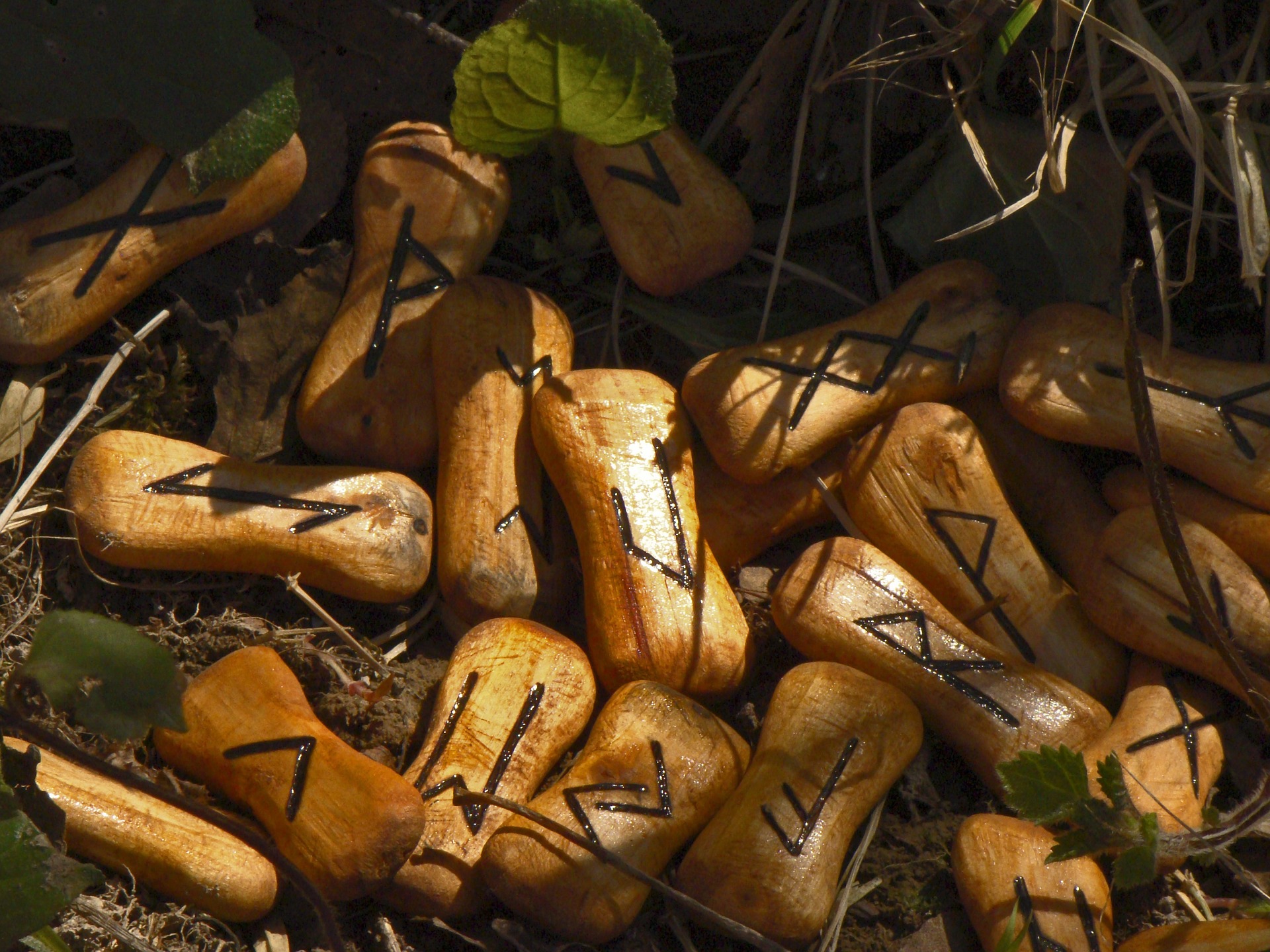
"Each runic symbol contains an elemental force which corresponds to a god or natural power. Whether using runes for ritual magic, meditation or divination, the forces set in motion by runes are primal and highly effective." - Donald Tyson - The Truth about Runes
Know how to cut them,
Know how to read them,
Know how to stain them,
Know how to evoke them,
Know how to send them.
The Epic Poem Havamal
Humankind has used signs and sigils for thousands of years to aid in communication, to record knowledge and in some cases to divine the future and evoke magic for purposes of protection and empowerment. The ancient Runemasters used runes to ward off harm from the physical and psychic realms but Runic Magic was the gift of the warlock who was skilled in the magical art of wardlokkur which included the techniques of protecting or binding people or constraining spirits.
One of the most popular runes used for binding magic in ancient times were known as alerunes. Alerunes were used to block any magical enchantments of ‘strange' women. The man under alleged attack would write these runes on the inside of the cup from which the woman in question would take a drink. To activate the rune power the man would scratch the rune Nauthiz (constraint) on his fingernail. Also of great importance in the ancient world was the weather particularly connected to farming, hunting and sailing. The idea was to properly anticipate the weather and then try to control it. To this end, Runemasters used brunrunes which translates literally to fountain runes or surf runes in order to connect harmoniously with the power or running and flowing water usually associated with the ocean. Brunrunes were carved upon the stern, steering oar or rudder of a ship to protect it at sea.
Like other methods of insight such as the Tarot, astrology, and numerology the runes are subject to ‘polarity' and can be used for good or ill. Like their esoteric counterparts they were also forced to undergo persecution by religious authority during the Middle Ages but remained alive and preserved by the scholars and archeologists who studied them and through the ancient texts that carried their legends and history. A contemporary infiltration of the runes finds them in starring roles in today's literature and movies.
1958's Curse of the Demon (aka Night of the Demon) based on the story Casting the Runes by Montague R. James, starred Dana Andrews as an American psychologist Dr. John Holden pitted against a Satanic cult leader Julian Karswell played by Niall MacGinnis who used ancient runic symbols written on a scroll of parchment to call up a fire demon from hell to destroy his enemies.
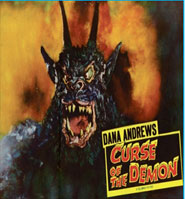

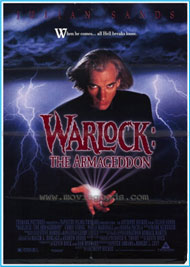
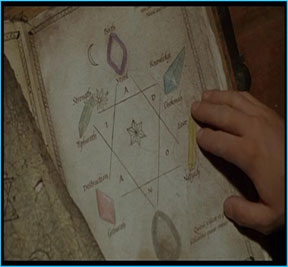
1993's Warlock The Armageddon starred Julian Sands as a wicked warlock bent on assisting Satan in entering the world through use of magic connected to ancient crystals etched with runic symbols. The runic crystals in this movie are a good example of the polarity connected to the rune energies. In the beginning of the movie the audience is made aware via a conversation between modern day Druids who are protecting the Earth that the stones can be used to either "free or trap" the devil. The Druids are alerted to the presence of the warlock and the potential for satanic disaster by the appearance of the rune Berkana (pictured below left) which represents ‘birth'. The rune representing a "demon" is Thurisa (pictured below right).
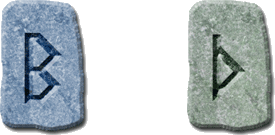
The illustration below depicts Runic Insigils, Bind Runes and Runic Script from several different versions of Runic Alphabets and encoded runes - Germanic, Gothic, Medieval, hahalrúnar (hook runes), tjaldrúnar (tent runes-x shape), Iis (unconnected single stroke runes), tree runes and branch runes.
Throughout history, Runic Insigils and Bind Runes consisting of combined runic letters and related signs have been used to make powerful amulets. The runic wheel is the most powerful and quite effective version of Runic Insigil. From a central point four, six or eight intersecting lines are drawn to form a star like pattern. Runes are then written along the lines and a circle is drawn around the circumference. A Runic Insigil made this way can be worn around the neck. This is known as a bracteate. Numbers 1, 2 and 4 in the illustration depict Runic Insigils. Number 1 is known as the Helm Of Awe and is considered the most powerful insigil of all. It represents irresistible power granting the wearer the capability to disempower any opponent using physical and psychic force. Bind Runes are single runic characters made up of two or more runes that share common elements. Numbers 3, 9, 10, 11-15 in the illustration are examples of Bind Runes. Numbers 5-8 are examples of Runic Script with some binding.
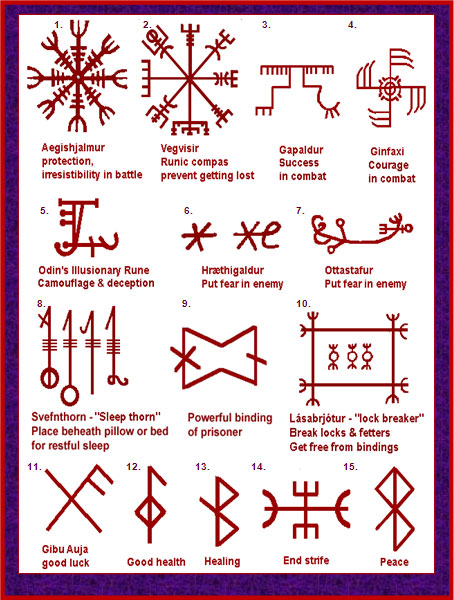
Reprinted with permission of http://thegalaxyexpress.com
- 2023 reads